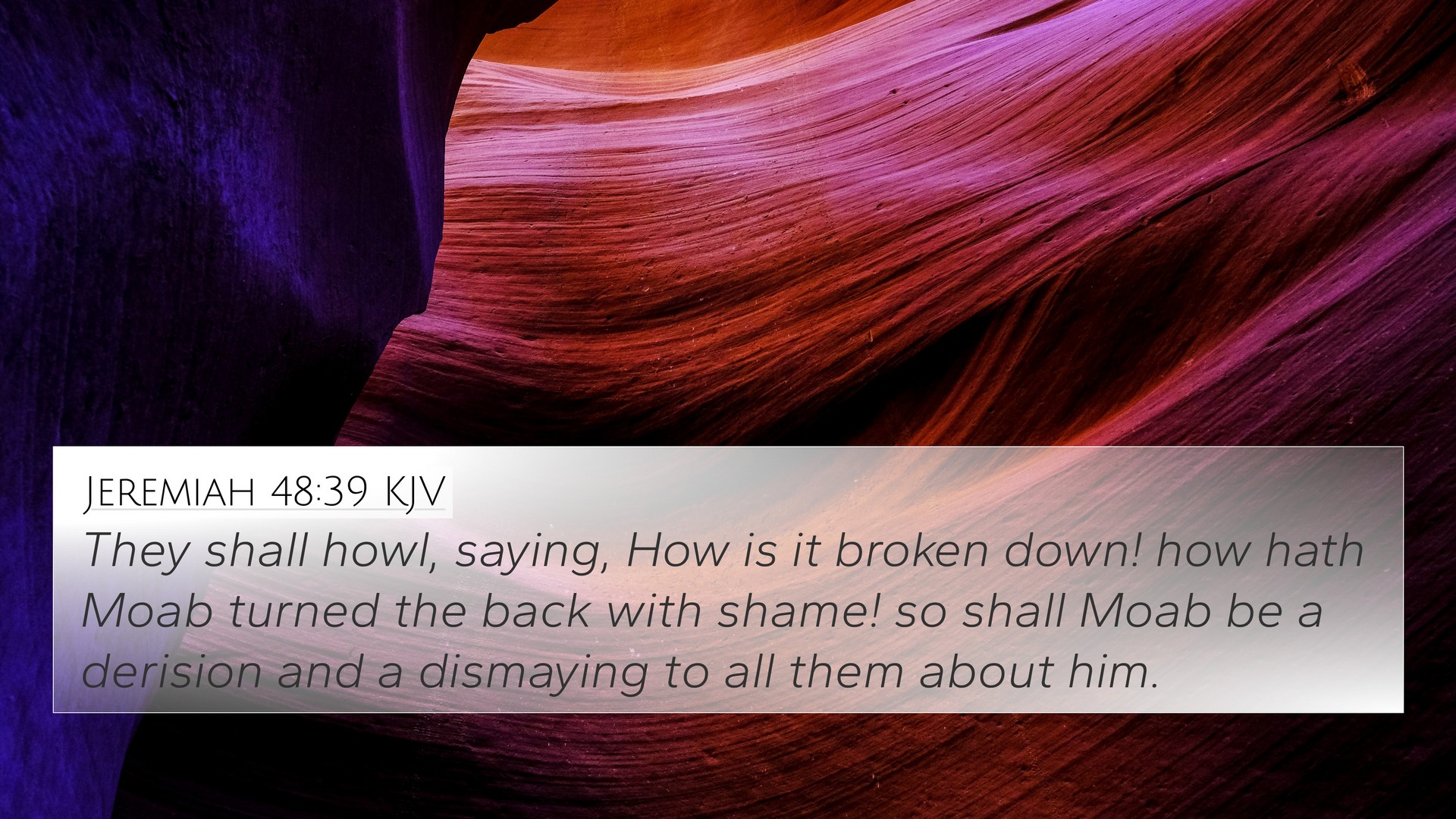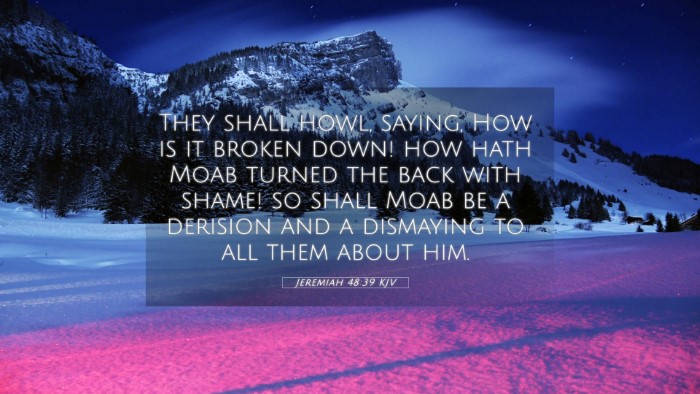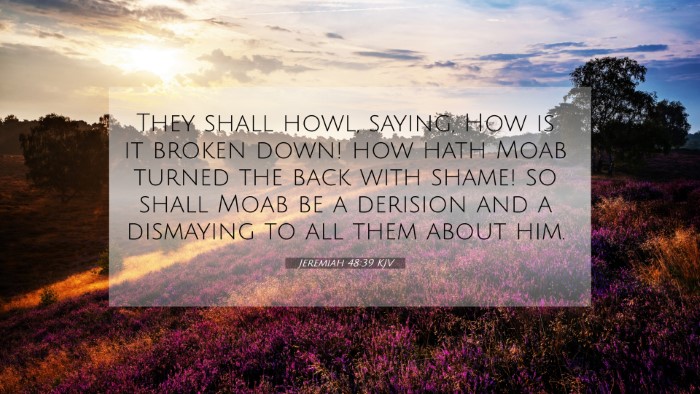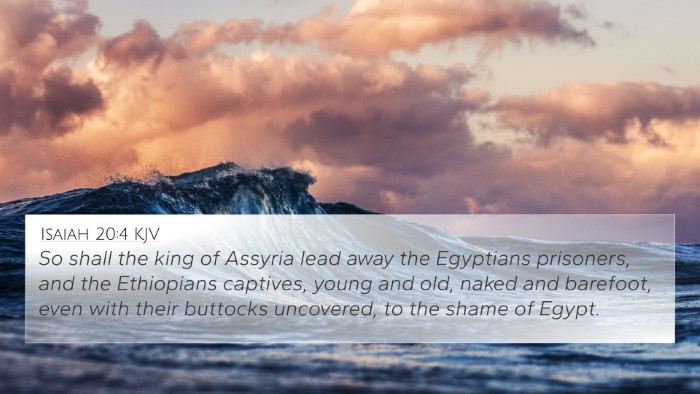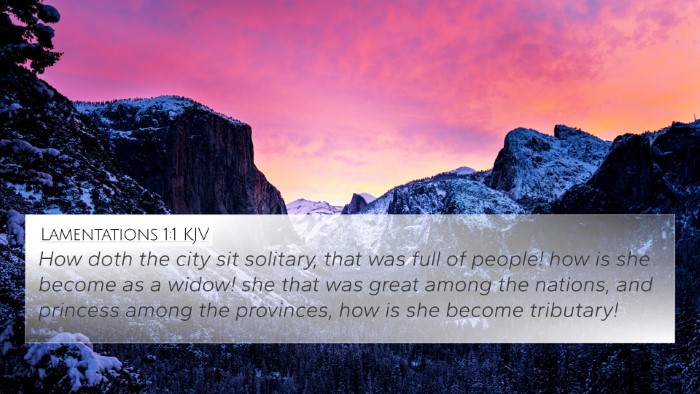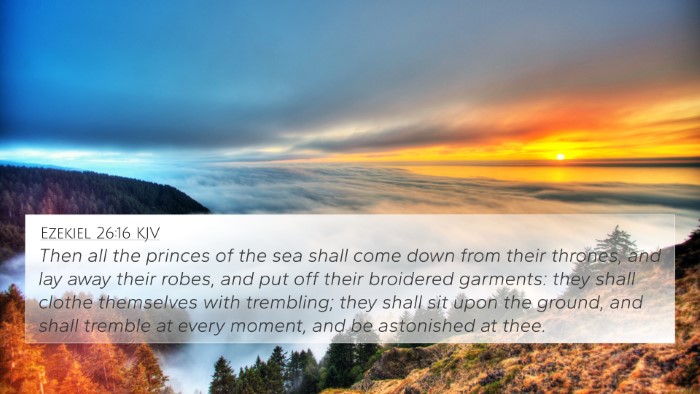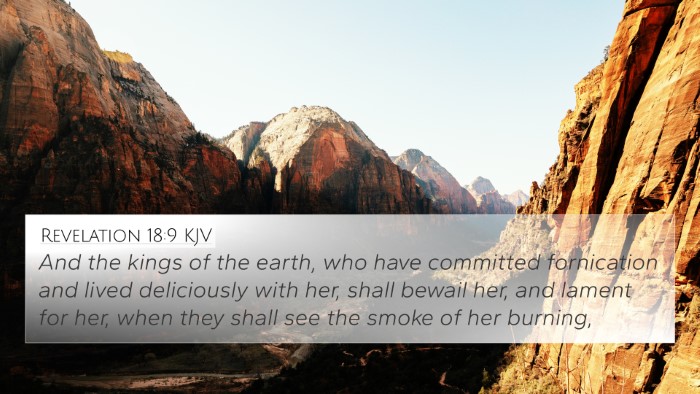Understanding Jeremiah 48:39
Jeremiah 48:39 states, "How is it broken down! How do they sigh! How is Moab turned back in shame!" This verse reflects the profound lamentation over Moab's downfall, emphasizing their state of grief and humiliation.
Summary of Insights from Public Domain Commentaries
Combining insights from the notable public domain commentaries such as Matthew Henry, Albert Barnes, and Adam Clarke, we can delve into the meaning of this verse in greater depth.
Matthew Henry's Commentary
Henry highlights that the anguish expressed in this verse underscores Moab's fall from grace. Once a prosperous nation, they now face disgrace due to their pride and opposition to God’s purposes. The prophet uses this lament to call attention to the spiritual implications of such a downfall, serving as a warning to other nations about the consequences of forsaking divine guidance.
Albert Barnes's Notes
Barnes elaborates on the devastation that comes to Moab, depicting the imagery of mourning as a symbolic representation of their spiritual state. He notes that the sighing and shame reflect a deeper realization of their vulnerability and loss of favor from God. This context paints a vivid picture of how divine judgment manifests and serves as an evocative reminder of the importance of humility before God.
Adam Clarke's Commentary
Clarke emphasizes the sociopolitical consequences of Moab's downfall, illustrating how such events resonate through the community. He indicates that the mention of shame is not merely personal; it embodies a collective identity lost, showcasing the intertwined nature of a nation's fate with its moral standing. His analysis invites readers to reflect on the interdependent relationship between societal actions and spiritual outcomes.
Bible Verse Cross-References
This verse relates closely to several other scriptures that shed light on the themes of judgment, pride, and lamentation:
- Isaiah 15:1-9 - A parallel account of Moab’s devastation, illustrating the impending judgment by neighboring nations.
- Ezekiel 25:8-11 - God’s judgment against Moab as a reflection of their actions towards His people.
- Jeremiah 49:7-22 - A broader narrative that includes the series of judgments announced against the nations including Moab.
- Psalms 60:8 - Recognition of Moab, symbolic of foreign oppression that echoes the sentiments of distress found in Jeremiah.
- Romans 12:18-19 - A New Testament perspective on God’s vindication and presence during a nation’s judgment, further resonating with themes of pride and downfall.
- Revelation 18:2 - A prophecy of the ultimate fall of Babylon, reflective of judgment against prideful cities, similar to Moab's fate.
- Lamentations 3:22-23 - A contrast within the theme of lamentation, showing how mercy persists even amidst judgment.
Thematic Bible Verse Connections
This verse presents several thematic connections across the biblical narrative, which can aid in deeper scriptural cross-referencing:
- Judgment and Mercy: The duality of God’s judgment against prideful nations while extending mercy.
- Community Impact: How individual sin affects community identity and standing before God.
- Humility vs. Pride: The necessity of humility as a guard against divine judgment.
- Divine Sovereignty: The theme of God orchestrating events to fulfill His purposes across nations.
Tools for Bible Cross-Referencing
For those interested in conducting a thorough study of cross-references, consider utilizing:
- Bible Concordance: A useful tool for locating specific words and their occurrences across scripture.
- Bible Cross-Reference Guide: Resources that outline relational verses for similar themes.
- Cross-Reference Bible Study Methods: Techniques for integrating various biblical themes through detailed analysis.
User Intent and Exploration
This scripture invites inquiry into numerous aspects of God's character and His relationship with humanity:
- What verses are related to Jeremiah 48:39? Explore connections to other passages discussing judgment and lamentation.
- Find cross-references for Moab's judgment. Delve into narratives that discuss the outcomes of opposing God's will.
- Similarities between Jeremiah 48:39 and other prophetic writings. Examine how similar themes are echoed in different contexts throughout the scriptures.
Conclusion
Jeremiah 48:39 intricately ties themes of national identity, divine judgment, and the necessity for humility before God. Through understanding its context and connecting it with related scriptures, we garner profound lessons for both individual and communal faith journeys. The lamentation over Moab serves not just as an historical account but as a timeless reminder of the spiritual principles that guide human conduct within the divine framework.
